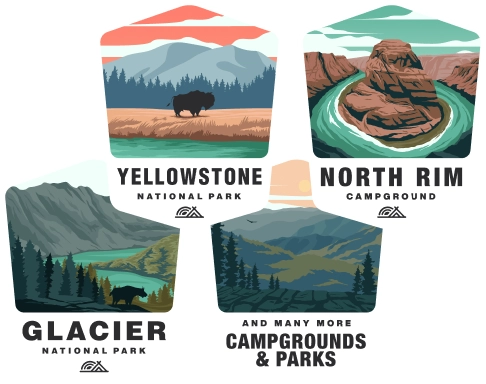Camping at Eagle Lake Cabin Campground
Overview of Eagle Lake Cabin Campground
Eagle Lake Cabin is a remote campground situated in the Tongass National Forest, the largest national forest in the United States, located in Southeast Alaska. This scenic campground is renowned for its beautiful setting, offering opportunities for wildlife viewing, fishing, and enjoying the solitude of the Alaskan wilderness.
Access and Transportation
Access Eagle Lake Cabin is generally accessed by floatplane or boat, depending on the season and weather conditions. It is important to plan travel carefully and be aware of changing weather patterns which can affect transportation.
Transportation Floatplanes can be chartered from nearby towns like Juneau or Ketchikan. If opting for boat travel, you need to be very familiar with local waterways and tides. You need to arrange transportation well in advance and have a backup plan in case of inclement weather.
Reservations and Fees
Reservations Eagle Lake Cabin must be reserved in advance through the U.S. Forest Service's reservation system, Recreation.gov. It is very popular, especially in the summer months, so it's advisable to book well ahead of your planned trip.
Fees There is typically a nightly fee for renting the cabin, which can change, so check the current rates when planning your trip.
Facilities and Amenities
Cabin Features The cabin is usually equipped with basic amenities such as bunks, a wood stove for heating, a table, benches, and an outhouse. Occupants must bring their own sleeping bags, cooking equipment, and other personal items.
No Power or Water Keep in mind that there is no electricity, potable water, or plumbing at the cabin. Visitors must treat water from the lake or nearby streams for consumption.
Waste Disposal Pack out all trash, as there are no garbage disposal services. Follow Leave No Trace principles to keep the area pristine.
Activities
Fishing Eagle Lake is often stocked with fish, making it an attractive spot for freshwater fishing. Be sure you have the appropriate Alaska fishing license and are aware of any regulations.
Wildlife Watching The area provides excellent opportunities for wildlife watching. Eagles, bears, and many other species can often be observed in their natural habitat.
Hiking Trails might be available around the cabin, offering chances to explore the forest and experience the wilderness.
Boating Visitors can bring kayaks, canoes, or small motorized boats to explore Eagle Lake's waters.
Safety Considerations
Weather The weather can change rapidly; be prepared for rain, cold, and potentially challenging conditions.
Wildlife Encounters Bear safety is crucial; store food properly and know what to do if you encounter a bear.
Emergency Situations Cell phone service is likely non-existent. Have a plan for emergencies, possibly including satellite communication devices.
Environmental Stewardship
Preserving Nature Maintain the pristine nature of the forest by following all guidelines and minimizing your impact. Always leave the cabin cleaner than you found it.
Planning Tips
-
Check Availability Early Because of its remote location and limited availability, making reservations early is advised.
-
Pack Appropriately Bring appropriate gear for self-sufficiency, including sleeping bags, food, water filtration, and a first aid kit.
-
Be Bear-Aware Educate yourself on how to store food and act in bear country.
-
Prepare for No Cell Service Consider bringing a satellite phone or another form of emergency communication.
-
Understand the Cabin Rules Familiarize yourself with the specific rules and regulations for Eagle Lake Cabin which can be found on the Recreation.gov listing or by contacting the local ranger district office.
Before setting out on your adventure to Eagle Lake Cabin, it's essential to consult with local Forest Service offices for the latest updates, conditions, and advisories which could affect your trip.
